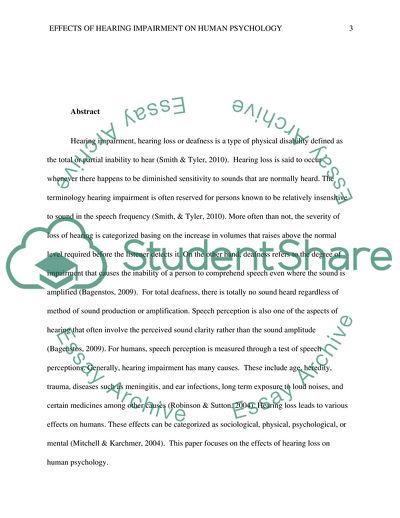Cite this document
(Effects of Hearing Impairment on Human Psychology Coursework Example | Topics and Well Written Essays - 1500 words, n.d.)
Effects of Hearing Impairment on Human Psychology Coursework Example | Topics and Well Written Essays - 1500 words. https://studentshare.org/psychology/1785972-pick-a-physical-disability-and-explain-how-does-it-affects-the-human-psychology
Effects of Hearing Impairment on Human Psychology Coursework Example | Topics and Well Written Essays - 1500 words. https://studentshare.org/psychology/1785972-pick-a-physical-disability-and-explain-how-does-it-affects-the-human-psychology
(Effects of Hearing Impairment on Human Psychology Coursework Example | Topics and Well Written Essays - 1500 Words)
Effects of Hearing Impairment on Human Psychology Coursework Example | Topics and Well Written Essays - 1500 Words. https://studentshare.org/psychology/1785972-pick-a-physical-disability-and-explain-how-does-it-affects-the-human-psychology.
Effects of Hearing Impairment on Human Psychology Coursework Example | Topics and Well Written Essays - 1500 Words. https://studentshare.org/psychology/1785972-pick-a-physical-disability-and-explain-how-does-it-affects-the-human-psychology.
“Effects of Hearing Impairment on Human Psychology Coursework Example | Topics and Well Written Essays - 1500 Words”. https://studentshare.org/psychology/1785972-pick-a-physical-disability-and-explain-how-does-it-affects-the-human-psychology.


